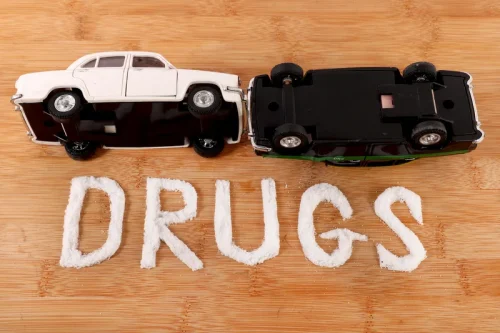How an Alcoholic Mother Affects Children

Coping with the lasting effects of a parent’s alcohol use can be difficult, but you don’t have to do it alone. You’re not to blame if you learned to use alcohol as a means of dealing with trauma from your childhood, but you can always take action to learn new, more helpful coping mechanisms. Children largely rely on their parents for guidance learning how to identify, express, and regulate emotions. But a parent with AUD may not have been able to offer the support you needed here, perhaps in part because they experienced emotional dysregulation themselves.

Let’s talk about your recovery

When parents are under the influence of alcohol, their ability to effectively monitor their children’s activities diminishes significantly. When a parent has an alcohol use disorder, it’s not the child’s responsibility to get the parent into alcohol treatment. However, other adults can certainly step in to encourage the parent to seek treatment. As a result of trust issues or the lack of self-esteem, adult children of parents with AUD often struggle with romantic relationships or avoid getting close to others. Because alcohol use is normalized in families with alcoholism, children can often struggle to distinguish between good role models and bad ones.
- A sudden change of plans or anything that feels out of your control can trigger your anxiety and/or anger.Youthrive on routine and predictability.
- For example, your child could attend school or daycare during the day and stay with friends or family at night.
- Fortunately, treatment is available to help mothers overcome alcohol addiction and be more present with their children.
- From inconsistent parenting and poor monitoring to emotional unavailability and marital conflict, the repercussions of parental alcoholism in children are far-reaching.
- As such, a wide range of individual and family therapy options are available through American Addiction Centers (AAC).
Additional articles about codependency and Adult Children of Alcoholics that you may find helpful:
This family member, which is not always a child, picks up the slack created by the effects of alcohol abuse. Mostly possessing a tight bond with the alcoholic, the enabler will take on additional responsibilities permitting the alcoholic to continue his or her substance-abusing ways, often at high personal cost. The facilitator sees themselves as protecting their family by acting this way, although they do more harm than good.
Effects on Adult Children of Alcoholic Parents
They’re also more likely to be truant, get suspended and drop out of school. Babies whose mothers consume alcohol while pregnant can develop an array of physical and mental birth defects. Twelve-step program Collectively known as fetal alcohol syndrome disorders, this group of conditions can range from mild to severe. If alcoholic parents are overlooked, in general, then even less attention is paid to alcoholic mothers. ‘People can’t believe mothers can be alcoholics; it goes against everything a mother should be,’ Spiegler says. People who deal with alcoholic parents’ effects are at higher risk of also becoming alcoholics.
- Children of alcoholics may also struggle with trust issues and have difficulty forming trusting relationships with others.
- If this was the case with your parent, you may have learned to pay attention to small, subtle signs at a young age.
- Guilt, distrust, denial, inability to express emotions, shame, need for control, low-self esteem, reliance, empathy, maturity, and responsibility are all developed in response to their chaotic and unstable environment.
- For instance, a child’s simple request to use the family car could be met with verbal abuse one day and thoughtful consideration the next.
How Children Are Affected By Parents With Alcohol Use Disorder

Growing up with a parent who has an alcohol use disorder can change how an adult child interacts with others. It can cause problems in their relationships with friends, family members, and romantic partners. ListenOne of the most important things you can do for a child of an alcoholic parent is to listen to them. Allow them to express their feelings and concerns, without judgment or criticism.
Parental alcohol abuse and ineffective coping methods
- Never entirely sure how they’d act or react, you might have found yourself constantly on high alert, ready to respond accordingly and protect yourself.
- If a child’s parent was mean or abusive when they were drunk, adult children can grow up with a fear of all angry people.
- An unpredictable and unreliable environment can cause a child to feel unsafe in their own home.
- Addressing these issues head-on with appropriate treatment and support can lead to healthier outcomes for all family members.
- ‘The only times I let myself go and allowed myself to enjoy myself was when I was drunk.
- This attentiveness can be excessive and may distract in work environments, family life, and other relationships.
By 1997, there were 2.4 million households in which grandparents were the primary guardians of children. A family instinctively forms an equilibrium contributed to by all members’ inherent and learned traits. Substance abuse creates a breach in this cultivated existence that must be rectified by the other members of the family, often placing undue responsibilities on adult children who aren’t ready to take them on. Maybe your parent was irritable, easily alcoholic mother effect on son aggravated, or verbally or emotionally abusive while drinking or in withdrawal. Experiencing these behaviors from a parent can also wear down your self-worth over time. Consequently, you might become more sensitive to criticism and rejection and have a harder time standing up for yourself.
Treatment Options

Our approach centers on treating people with the same kindness and respect that we value for ourselves. We understand mental health challenges firsthand and support your pursuit of well-being with compassion. Whether it’s connecting you with the right therapist or supporting you through difficult times, we embrace you as part of our community. Children and adolescents are particularly sensitive to the emotional climate in their homes.
Effects of Alcoholism on Families and Friends
For instance, a child’s simple request to use the family car could be met with verbal abuse one day and https://ecosoberhouse.com/ thoughtful consideration the next. This inconsistency not only confuses the child but also undermines their sense of stability and control within the family environment. In a study of more than 25,000 adults, those who had a parent with AUD remembered their childhoods as “difficult” and said they struggled with “bad memories” of their parent’s alcohol misuse.
The absence of emotional support can push adolescents towards other sources of comfort, which may include affiliating with friends who engage in risky behaviors like heavy drinking. This creates a vicious cycle where the lack of parental emotional support leads to poor choices by the adolescent, further exacerbating the problem. Research by Dishion and Loeber in 1985 highlights the importance of parental monitoring in preventing adolescent substance abuse.




